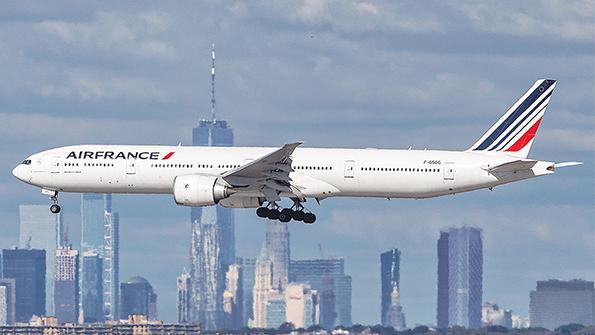Will Airbus-Boeing WTO Battle Continue Under New U.S. President?

The World Trade Organization dispute between Airbus, Boeing, the EU and the U.S. over illegal state subsidies for large commercial aircraft has survived three U.S. presidents, two of whom enjoyed two terms in office. Will it survive a fourth?
With Democrat Joe Biden preparing to move into the White House in January, possibly bringing a more conducive and less antagonistic approach to global trade negotiations than his predecessor, expectations are high among aerospace experts that a deal might finally be achieved in the 16-year dispute. That may yet occur, but industry experts also caution against irrational exuberance.
- Biden administration more likely to resolve the dispute
- Protectionist tendencies mean no quick fix is probable
On Nov. 10, the EU placed $4 billion worth of penalty tariffs on imported U.S. goods due to illegal U.S. subsidies provided to Boeing, including 15% extra on new airliners bought by European owners, as well 25% against a raft of agricultural—and politically sensitive—goods. The moves, in effect, mirror the targeting of U.S. tariffs on EU goods last year, when the World Trade Organization (WTO) greenlighted $7.5 billion in penalties there.
The day before, EU Trade Commissioner Valdis Dombrovskis refuted the notion that the EU penalties were retaliation against the U.S. action, noting they are the natural conclusion of the EU’s WTO case against the U.S.—the same as the U.S. tariffs against Europe. He also noted that Europe’s tariffs are not linked to the U.S. elections, implying they would have come in the spring when the WTO originally had been slated to rule before officials were sent home due to the COVID-19 pandemic.
Dombrovskis said he remains in “intensive” communication with the Trump administration and expects to continue working with it in coming months before Biden is sworn in. “We are open for a negotiated solution and open to drop our tariffs as soon as the U.S. is ready to drop theirs,” he said. The EU would continue that approach with a new administration, he noted.
That position was not a big surprise to some observers. “The idea is that the EU will want leverage, and the U.S. already has leverage,” notes Shanker Singham, chairman and CEO of Competere, a trade law and economic policy consultancy. “These are really decisions where the change in the presidency probably will make less of a difference than people think.
“These are very long-running issues; the Boeing-Airbus [dispute] has been running literally decades,” he continues. “Boeing is a very powerful force in the U.S. The Biden administration is not going to throw Boeing under the bus; they are going to continue to prosecute those interests. And on the EU side, they are going to continue to prosecute Airbus’ interests.”
With industry throttled back due to COVID-19, financial analysts have said the tariffs on both sides will have a minimal effect on OEM bottom lines or the nations’ workforces. Still, in February before the pandemic, Bloomberg Intelligence noted that even with tariffs on imported U.S. airplanes, Boeing would be less affected than Airbus.
“In a U.S.-Europe trade battle over airplanes, Airbus has more to lose,” Bloomberg Intelligence said. “All the fast-growing U.S. airlines purchase Airbus jets, including Frontier, Spirit, JetBlue, Allegiant and Delta.”
New data from the Aviation Week Network Fleet Discovery database shows 481 deliveries by Boeing to EU-based owners through 2029.
Bloomberg noted that it is also unclear whether the UK would place tariffs on U.S. aircraft as it leaves the EU and seeks to both bolster its economy and strike a trade deal with the U.S.
Singham agrees Brexit is a new complication. “There’s a wrinkle to this,” he says. “Where there is flexibility to do a deal on the underlying dispute—in other words, for the UK to give some compensation, whatever that happens to be—I think the UK will want to use it in order to get a deal with the U.S. and get its product off the retaliation list.”
Then again, other experts have asked whether a U.S.-U.K. trade deal could slow under a Biden administration. The reasons are numerous but include potential political differences between Biden and UK Prime Minister Boris Johnson, as well as the normal go-slow approach new U.S. administrations take to projects inherited from their predecessors. What is more, the EU has openly threatened to use another $4 billion worth of potential tariffs it won in a separate WTO trade case against the U.S.
The Trump administration reportedly has offered to end the dispute if Airbus pays roughly $10 billion as part of the resolution—a nonstarter for the European industrial giant and an idea swiftly rejected by Dombrovskis.
The likelihood is that the 16-year airliner subsidy dispute will stretch on into its 17th year.







Comments